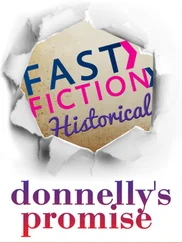Ignatius Donnelly - Antediluvian world
Здесь есть возможность читать онлайн «Ignatius Donnelly - Antediluvian world» весь текст электронной книги совершенно бесплатно (целиком полную версию без сокращений). В некоторых случаях можно слушать аудио, скачать через торрент в формате fb2 и присутствует краткое содержание. Жанр: Старинная литература, на русском языке. Описание произведения, (предисловие) а так же отзывы посетителей доступны на портале библиотеки ЛибКат.
- Название:Antediluvian world
- Автор:
- Жанр:
- Год:неизвестен
- ISBN:нет данных
- Рейтинг книги:5 / 5. Голосов: 1
-
Избранное:Добавить в избранное
- Отзывы:
-
Ваша оценка:
- 100
- 1
- 2
- 3
- 4
- 5
Antediluvian world: краткое содержание, описание и аннотация
Предлагаем к чтению аннотацию, описание, краткое содержание или предисловие (зависит от того, что написал сам автор книги «Antediluvian world»). Если вы не нашли необходимую информацию о книге — напишите в комментариях, мы постараемся отыскать её.
Antediluvian world — читать онлайн бесплатно полную книгу (весь текст) целиком
Ниже представлен текст книги, разбитый по страницам. Система сохранения места последней прочитанной страницы, позволяет с удобством читать онлайн бесплатно книгу «Antediluvian world», без необходимости каждый раз заново искать на чём Вы остановились. Поставьте закладку, и сможете в любой момент перейти на страницу, на которой закончили чтение.
Интервал:
Закладка:
tigers, lions, elephants, and hyenas, without bearing the memory of these things in their tongue. A tiger, identical with that of Bengal, still exists around Lake Aral, in Asia; from time to time it is seen in Siberia. “The last tiger killed in 1828 was on the Lena, in latitude fifty-two degrees thirty minutes, in a climate colder than that of St.
Petersburg and Stockholm.”
The fathers of the Aryan race must have dwelt for many thousand years so completely protected from barbarians and wild beasts that they at last lost all memory of them, and all words descriptive of them; and where could this have been possible save in some great, long-civilized land, surrounded by the sea, and isolated from the attack of the savage tribes that occupied the rest of the world? And if such a great civilized nation had dwelt for centuries in Asia, Europe, or Africa, why have not their monuments long ago been discovered and identified? Where is the race who are their natural successors, and who must have continued to live after them in that sheltered and happy land, where they knew no human and scarcely any animal enemies? Why would any people have altogether left such a home? Why, when their civilization had spread to the ends of the earth, did it cease to exist in the peaceful region where it originated?
Savage nations cannot usually count beyond five. This people had names for the numerals up to one hundred, and the power, doubtless, of combining these to still higher powers, as three hundred, five hundred, ten hundred, etc. Says a high authority, “If any more proof were wanted as to the reality of that period which must have preceded the dispersion of the Aryan race, we might appeal to the Aryan numerals as irrefragable evidence of that long-continued intellectual life which characterizes that period.” Such a degree of progress implies necessarily an alphabet, writing, commerce, and trade, even as the existence of words for boats and ships has already implied navigation.
In what have we added to the civilization of this ancient people? Their domestic animals were the same as our own, except one fowl adopted from America. In the past ten thousand years we have added one bird to their list of domesticated animals! They raised wheat and wool, and spun and wove as we do, except that we have added some mechanical contrivances to produce the same results. Their metals are ours. Even iron, the triumph, as we had supposed, of more modern times, they had already discovered.
And it must not be forgotten that Greek mythology tells us that the god-like race who dwelt on Olympus, that great island “in the midst of the Atlantic,” in the remote west, wrought in iron; and we find the remains of an iron sword and meteoric iron weapons in the mounds of the Mississippi Valley, while the name of the metal is found in the ancient languages of Peru and Chili, and the Incas worked in iron on the shores of Lake Titicaca.
A still further evidence of the civilization of this ancient race is found in the fact that, before the dispersion from their original home, the Aryans had reached such a degree of development that they possessed a regularly organized religion: they worshipped God, they believed in an evil spirit, they believed in a heaven for the just. All this presupposes temples, priests, sacrifices, and an orderly state of society.
We have seen that Greek mythology is really a history of the kings and queens of Atlantis.
When we turn to that other branch of the great Aryan family, the Hindoos, we find that their gods are also the kings of Atlantis. The Hindoo god Varuna is conceded to be the Greek god Uranos, who was the founder of the royal family of Atlantis.
In the Veda we find a hymn to “King Varuna,” in which occurs this passage:
“This earth, too, belongs to Varuna, the king, and this wide sky, with its ends far apart. The two seas are Varuna’s loins; he is contained also in this drop of water.”
Again in the Veda we find another hymn to King Varuna: “He who knows the place of the birds that fly through the sky; who on the waters knows the ships. He, the upholder of order, who knows the twelve months with the offspring of each, and knows the month that is engendered afterward.”
This verse would seem to furnish additional proof that the Vedas were written by a maritime people; and in the allusion to the twelve months we are reminded of the Peruvians, who also divided the year into twelve parts of thirty days each, and afterward added six days to complete the year. The Egyptians and Mexicans also had intercalary days for the same purpose.
But, above all, it must be remembered that the Greeks, an Aryan race, in their mythological traditions, show the closest relationship to Atlantis. At-tika and At-hens are reminiscences of Ad, and we are told that Poseidon, god and founder of Atlantis, founded Athens. We find in the “Eleusinian mysteries” an Atlantean institution; their influence during the whole period of Greek history down to the coming of Christianity was extraordinary; and even then this masonry of Pre-Christian days, in which kings and emperors begged to be initiated, was, it is claimed, continued to our own times in our own Freemasons, who trace their descent back to “a Dionysiac fraternity which originated in Attika.” And just as we have seen the Saturnalian festivities of Italy descending from Atlantean harvest-feasts, so these Eleusinian mysteries can be traced back to Plato’s island. Poseidon was at the base of them; the first hierophant, Eumolpus, was “a son of Poseidon,” and all the ceremonies were associated with seed-time and harvest, and with Demeter or Ceres, an Atlantean goddess, daughter of Chronos, who first taught the Greeks to use the plough and to plant barley. And, as the “Carnival” is a survival of the “Saturnalia,” so Masonry is a survival of the Eleusinian mysteries. The roots of the institutions of to-day reach back to the Miocene Age.
We have seen that Zeus, the king of Atlantis, whose tomb was shown at Crete, was transformed into the Greek god Zeus; and in like manner we find him reappearing among the Hindoos as Dyaus. He is called “Dyaus-pitar,” or God the Father, as among the Greeks we have “Zeus-pater,” which became among the Romans “Jupiter.”
The strongest connection, however, with the Atlantean system is shown in the case of the Hindoo god Deva-Nahusha.
We have seen in the chapter on Greek mythology that Dionysos was a son of Zeus and grandson of Poseidon, being thus identified with Atlantis.
“When he arrived at manhood,” said the Greeks, “he set out on a journey through all known countries, even into the remotest parts of India, instructing the people, as he proceeded, how to tend the vine, and how to practise many other arts of peace, besides teaching them the value of just and honorable dealings. He was praised everywhere as the greatest benefactor of mankind.” (Murray’s “Mythology,” p. 119.) In other words, he represented the great Atlantean civilization, reaching into “the remotest parts of India,” and “to all parts of the known world,” from America to Asia. In consequence of the connection of this king with the vine, he was converted in later times into the dissolute god Bacchus. But everywhere the traditions concerning him refer us back to Atlantis. “All the legends of Egypt, India, Asia Minor, and the older Greeks describe him as a king very great during his life, and deified after death. . . . Amon, king of Arabia or Ethiopia, married Rhea, sister of Chronos, who reigned over Italy, Sicily, and certain countries of Northern Africa.” Dionysos, according to the Egyptians, was the son of Amon by the beautiful Amalthea. Chronos and Amon had a prolonged war; Dionysos defeated Chronos and captured his capital, dethroned him, and put his son Zeus in his place; Zeus reigned nobly, and won a great fame. Dionysos succeeded his father Amon, and “became the greatest of sovereigns. He extended his sway in all the neighboring countries, and completed the conquest of India. . . . He gave much attention to the Cushite colonies in Egypt, greatly increasing their strength, intelligence, and prosperity.” (Baldwin’s “Prehistoric Nations,” p. 283.)
Читать дальшеИнтервал:
Закладка:
Похожие книги на «Antediluvian world»
Представляем Вашему вниманию похожие книги на «Antediluvian world» списком для выбора. Мы отобрали схожую по названию и смыслу литературу в надежде предоставить читателям больше вариантов отыскать новые, интересные, ещё непрочитанные произведения.
Обсуждение, отзывы о книге «Antediluvian world» и просто собственные мнения читателей. Оставьте ваши комментарии, напишите, что Вы думаете о произведении, его смысле или главных героях. Укажите что конкретно понравилось, а что нет, и почему Вы так считаете.












